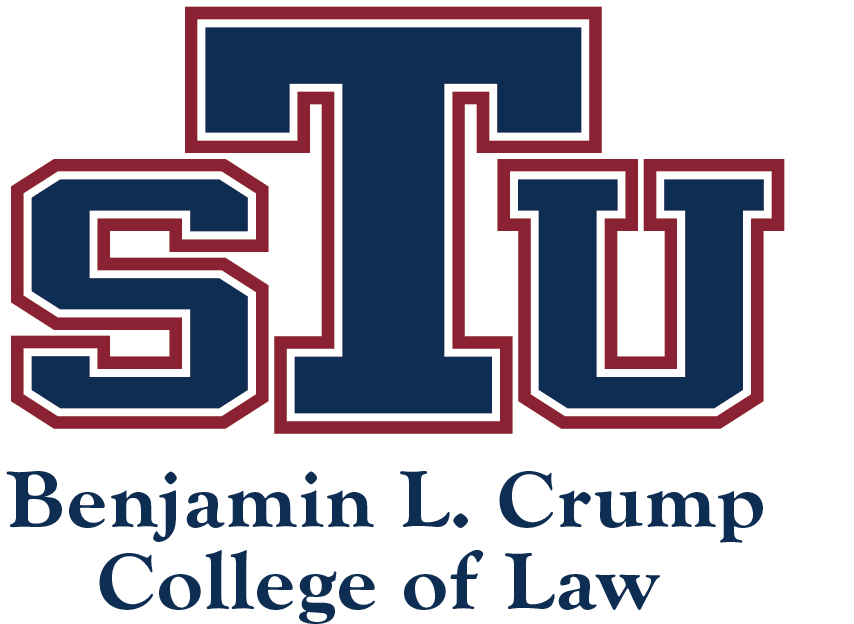J.S.D. Curriculum
Academic Evaluation
Towards completion of the requirements, the J.S.D. candidate has to submit a publishable manuscript of no less than 75,000 words on his/her chosen topic (the dissertation) to his or her supervisor. The format of this paper should be in Times New Roman font, size 12, and 1.5 spacing, with one inch space left on both left and right margins. Upon approval of the draft by the supervisor as final, the student will submit two bound copies of the manuscript to the Director of the Program.
First Evaluation
The supervisor will submit a substantive report on the dissertation, including the determination of a grade from a slate ranging from summa cum laude (highest honors), to magna cum laude (high honors), to cum laude (honors), to rite (pass), and insufficienter (fail). Upon completion of the review, the supervisor will forward his/her evaluation and the dissertation to the Director of the J.S.D. Program in Intercultural Human Rights.
Second Evaluation
Upon consultation with the J.S.D. Committee, the Director of the J.S.D. Program in Intercultural Human Rights will appoint a second evaluator who will appraise the thesis on its academic merit, submit a substantive evaluation report, and assign a grade from the range of summa cum laude to insufficienter. The supervising professor, the second grader of the dissertation as well as the members of the rigorosum committee should hold the academic equivalent of a J.S.D., S.J.D., Dr. iur. or Ph.D. degree.
The substantive reports of both the first and the second evaluator should point out concretely the degree of mastery of the subject-matter by the student, the exhaustiveness vel non of his/her research, his/her analytical depth, his/her style, but most importantly, the novelty of the contribution made by the dissertation to the knowledge in the field.
Rigorosum
Upon receipt of the second opinion, and both evaluators agreeing that the thesis merits at least a passing grade, the J.S.D. Committee will schedule a rigorosum. The rigorosum is about one-hour defense of the thesis before a committee of three qualifying faculty. In this defense, not just issues pertaining to the topic of the dissertation, but all issues relating to the field of human rights law and policy constitute legitimate subject-matters of questioning. The rigorosum committee, in its discretion, may extend the time of questioning beyond one hour. The rigorosum committee will determine the rigorosum grade from the range of summa cum laude to insufficienter.
Grading
The grades of the first and the second evaluator as well as the rigorosum must all be rite (pass) or above. They each count one-third toward the final grade, i.e. the grades of each of the three parts of the evaluation will be added up and divided by three to arrive at the final grade for the J.S.D. degree. To facilitate this count, the J.S.D. grades are given the following numerical values:
- summa cum laude = 5.0 (denoting an exceptional academic performance)
- magna cum laude = 4.0 (denoting a very good performance)
- cum laude = 3.0 (denoting an above average performance
- rite = 2.0 (denoting a passing performance)
- insufficienter = 0.0 (denoting a failing performance)
In line with the J.D. program, grades can only be changed by the Dean or Associate Dean of the College of Law in case of arithmetical error by a faculty member, upon that faculty member’s request.
Timeframe
The Evaluation Process may take up to two semesters from the semester when the student has submitted the dissertation as final, and the supervisor has accepted it as such.
Readmission
The J.S.D. candidate has to enroll in a J.S.D. thesis course for a minimum of two (2) years, and a maximum of five (5) years. Failure to enroll in this continuing course at any time and in any semester before the completion of the program, OR receipt of a failing grade in any semester due to lack of sufficient progress toward the completion of the thesis OR the unauthorized failure to fulfill the financial obligations toward St. Thomas University before the end of the semester in which they are currently enrolled will be deemed a resignation from the J.S.D. program. Once such a resignation has occurred, the candidate may reapply for admission, which will be decided upon by the J.S.D. Admissions Committee. If admitted, the student will be bound by the two year minimum/ five year maximum rule, as all newly admitted students.
Graduation Requirements
The following items must be completed prior to the conferral of a degree of Doctor of Science of Law (J.S.D.):
- The candidate must pass the two evaluations as well as the rigorosum and have a final grade.
- The dissertation must be published. In order of preference, the best venue of publication is a recognized academic publisher or a university press with global or national reputation and distribution. The next venue would be publication by a commercial press. The least preferable venue would be ProQuest or a similar recognized academic venue which would microfilm the manuscript, save it digitally, and create a PDF version, but manufacture copies only upon prepayment or on demand.
- The J.S.D. Committee has to approve a candidate’s planned publication venue prior to its being chosen. If that prior approval is not secured, the degree may not be granted.
- Upon approval of the publication venue, and in the case of publication with a recognized academic publishing house, a university press, a commercial publisher, or ProQuest, publication is considered proven by the submission of a signed and binding publication contract.
- The final publication must contain a reference to St. Thomas University in the first page at “Acknowledgments.” The suggested language is as follows: “This book is an edited and updated version of my J.S.D. thesis in Intercultural Human Rights at St. Thomas University in Miami, Florida.” This acknowledgment constitutes a condition on the publication attached to the granting of the J.S.D. degree, and if violated, the J.S.D. Committee may revoke the degree.
- Regardless of what publication venue is being chosen, candidates have to submit, within two months of publication, five printed copies of the published book to the J.S.D. Committee. If this condition is violated, the J.S.D. Committee may revoke the degree.
Teaching and Research Methodology
Every student admitted to the J.S.D. program will be supervised by a qualifying faculty member, who agrees, in advance, to this assignment. The supervising professor should hold the academic equivalent of a J.S.D., S.J.D., Dr. iur. or Ph.D. degree him- or herself. The supervising professors will be either qualifying St. Thomas University College of Law professors or select faculty outside of St. Thomas University willing to serve, if appropriate, as supervisors/graders of J.S.D. theses in Intercultural Human Rights.
In-house professors will be available as supervisors as agreed upon with J.S.D. candidates. Outside professor-supervisors are expected to come to Miami at least once a year, as they often teach in the LL.M. Program in Intercultural Human Rights, enabling students in Miami to get in touch with them at our place of instruction. As the usual time of completion of thesis is three years, the students would thus meet personally with their supervisor at least three times. Also, modern means of communication such as e-mail, Internet chat, fax, and telephone allow for constant and even instantaneous academic exchanges. The crowning task of the doctoral candidate will be the defense of his/her thesis against the challenges of a three-member faculty committee, including the supervisor, in a one-hour oral interchange, i.e. the rigorosum. The rigorosum may also test the candidate on his knowledge of the general field of human rights law and policy.
The St. Thomas Law Library, with its extensive holdings in the fields of international law and human rights, is available for use by students. With regard to materials needed to be online for the benefit of graduate IHR students, St. Thomas University College of Law has made arrangements to provide access to the electronic databases that are normally used in its J.D. program.

